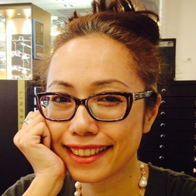JAN 2 ― Writing a feature on faith and the Malaysian middle class reaffirms my belief that this country can never be secular, in spite of the many debates and attempts at separating the state and faith.
Malaysia is a country of believers, and Malaysia is also very political. If it’s not the Muslim-Christian clash, it will be about the loss of animist beliefs due to religious conversion. Hindus want their temples to be acknowledged as divine and sacred.
There are two things that we must look at.
One is whether the religious debate is primarily an urban one.
Two: The inclusion of semi-urban and rural voices in Malaysia when it comes to faith-based dynamics.
Another thing that we must learn about is our religious histories. For instance, when it comes to Islam in Malaysia, it is not just about tauhid, fiqh, aqidah, and so forth.
Malaysian Muslims need to know who the messengers and the teachers of their faith were. We Muslims are who we are because of our teachers and the people who taught us about Islam.
And yet, we are different from Muslims in Indonesia, Turkey. Why are we known to be literalists? Are we reformists? Why do we believe wholeheartedly in a person who could be, well, not well informed about Islam?
Unlike our neighbours, acceptance about our past histories and spiritual heritage does not sit well with our authorities and even among our loved ones.
Nobody wants to dig and learn about how we truly came to be, and yet when it comes to our faith, we get defensive. We don’t embrace our differences and similarities.
God is everywhere in Malaysian life. The small shrine you see by the roadside in Chow Kit. The store room which has been converted to a small surau for staff. As we walk around and go about our businesses, there are angels and spirits by us. The atheists laugh at our superstitions, but they can’t deny that God is constant.
Even in politics.
My friend Sharanya Marivannan disagrees. Why can’t Malaysia be secular? It can be like India, she suggests.
“The way I say it, secularism as a pledged ideal is not atheism. It is a way simply of setting forth a statement of privileging no religion over another. This, of course, is only on paper. But this matters, just as much as it matters that a marriage be registered. When it comes to law, law enforcement, etc, it really matters. For example, India is a secular state. But religion is everywhere, in beautiful and in ugly ways, here too.”
***
Today the Fatwa Council Chief demanded for non-Muslims to stop asking for religious equality.
Like clockwork, angry responses against the statement came in. On Facebook, people air their grouses. Real, sane Malays don’t think that, do they, people asked.
I’ve been to enough usrahs to know that the message to the Muslim public is clear: Allah cannot and is not to be shared with non-Muslims. Many professionals agree with the verdict, and many ulamaks, and yes even those who are seemingly open, say Allah is the domain of Muslims.
Why can’t we model ourselves like Indonesia? India? Egypt? Utopia? Everyone wants to know.
We can, but we won’t. We’re not Indonesia. Nor India. We’re Malaysia.
The truth is bitter to swallow, especially for non-Muslims, and Muslims who disagree with the fatwa (bear in mind that even some conservative Muslims do not agree with this).
Rightly or wrongly, the reality is that many Muslims feel that it is wrong for Allah to appear in the Bible, for non-Muslims to even utter “Allah.” They cannot even accept a “salam” from a non-Muslim, even though this greeting is normal in other Muslim countries.
***
I have been assigned to write a feature on faith and the Malaysian middle class. One of the respondents raised an interesting point: what is middle class in an age when someone from Felda can become an instant millionaire, or when an impoverished woman is catapulted into it (middle class) by marriage?
I think this is something we must look at because there are various types of middle class communities. The “Melayu” middle class may earn the same as the more Westernised Malay middle class, but are their mentalities the same? Are their psyches too? Is the urbane Christian who prays and shops in Bangsar the same as the laid-back Christian in Penang, even though their lifestyles may be very similar?
Questions, questions, questions. All these as we start a new year. But one must be hopeful though ― if Malaysia is perfect, what would there be to fight for?
* This is the personal opinion of the columnist


Comments
Please refrain from nicknames or comments of a racist, sexist, personal, vulgar or derogatory nature, or you may risk being blocked from commenting in our website. We encourage commenters to use their real names as their username. As comments are moderated, they may not appear immediately or even on the same day you posted them. We also reserve the right to delete off-topic comments